A new study just came out, and the headlines on it seem to be something along the line that “a ketogenic diet in lean individuals does not increase the risk of heart disease”. I was curious when I saw this paper, but having read through it, I don’t think the headlines reflect reality….
Why did the investigators do this study?
There has been discussion on whether elevated LDL cholesterol in lean individuals with an otherwise good cardiovascular profile represents the same level of risk of atherosclerosis as it does in the general population. For example, some data suggests that the elevation in LDL cholesterol is inversely related to BMI in people who have high HDL and low TG - so there has been speculation as to whether the rise in LDL cholesterol in these so-called “Lean Mass Hyper-Responders” is a normal/physiological adaptation to a marked change in macronutrient intake that may not in isolation be pathological.
What did they do?
This was an observational study called the KETO-CTA Trial which evaluated the progression of subclinical coronary atherosclerosis in healthy, lean participants who have an elevated LDL-C (>190mg/dl/4.9mmol/L) secondary to diet over a one-year period.
The sample they recruited were lean (BMI~ 22), good cardio risk profile generally but just had elevated LDL cholesterol (>254mg/dL or 6.6mmol/L). For context this is very high - The American Heart Association (AHA) recommends keeping LDL below 100mg/dL; and the European Society for Cardiology (ESC) recommends keeping LDL below 3mmol/L for the general population.
The investigators’ stated primary outcome was percent change in total non-calcified coronary plaque volume (NCPV), and this was pre-registered in the clinical trials registry. Non-calcified plaque is unstable plaque.
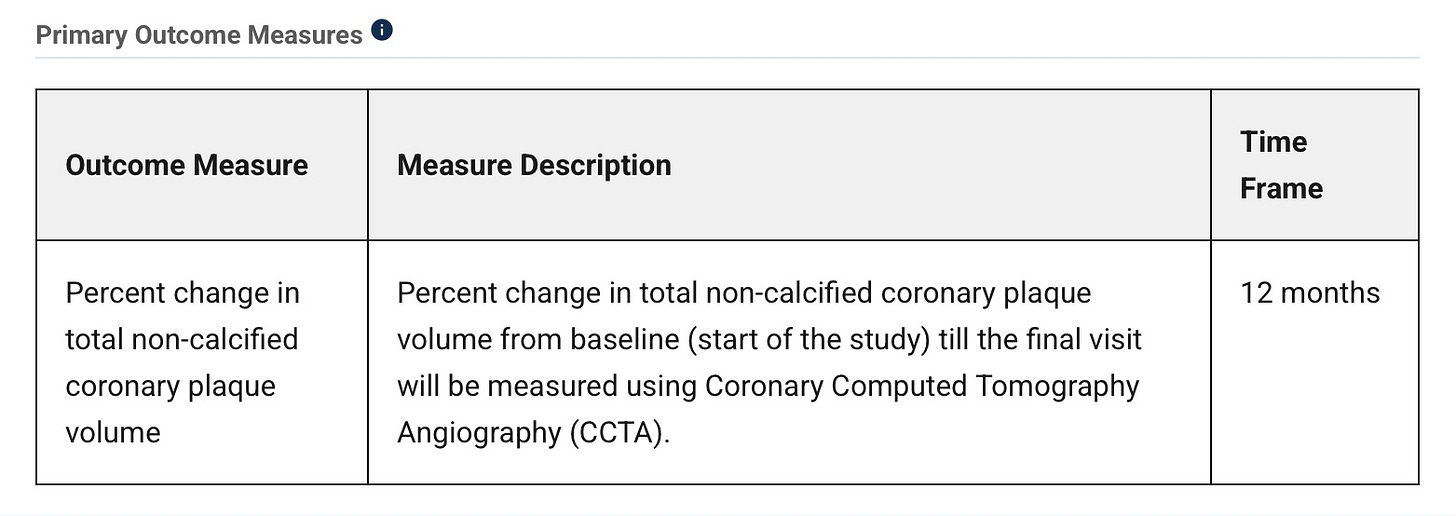
What did the investigators find?
Well, this is bonkers because you look at the abstract which is supposed to succinctly summarise what the study did and found, and the investigators….. don’t mention their primary outcome at all.
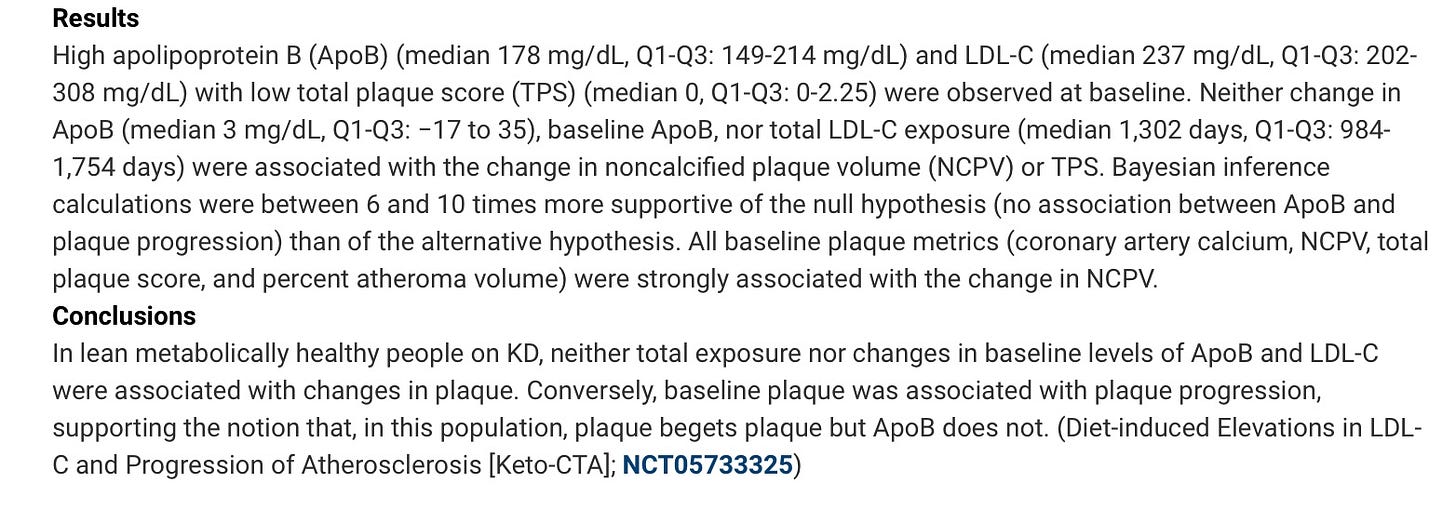
But luckily, the investigators do show a figure in the paper which displays the change in NCPV over the one year. And it looks like it goes up…….
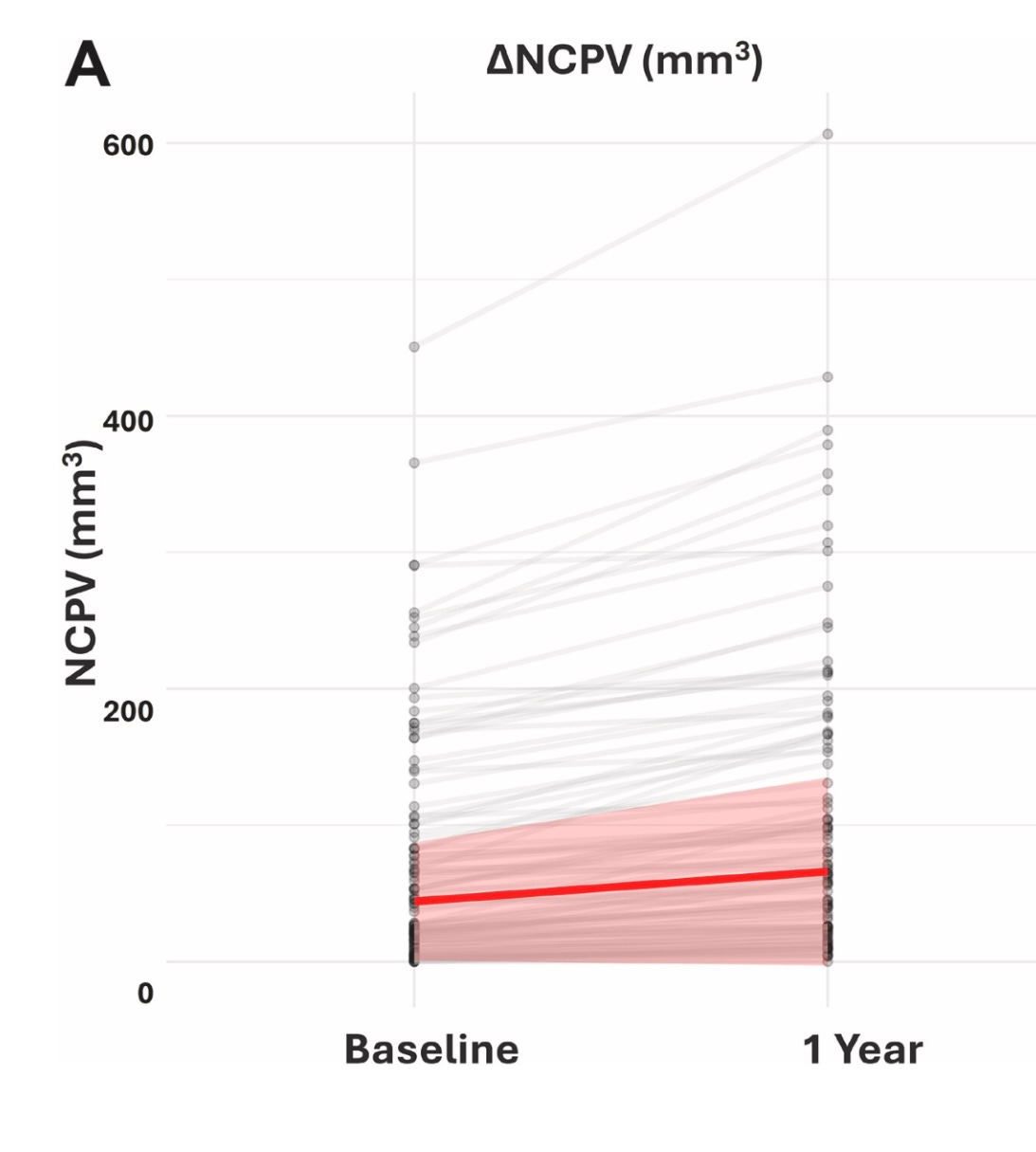
If I blow up the image on my iPad and use a ruler (!!!!), it looks like on average people are starting at about 45mm3 and heading up to just over 65mm3? So maybe close to an average 20 mm3 rise…….over the course of 12 months?
Okay, so how does this compare with what might be expected in a group not following a ketogenic diet? Or a group with low LDL cholesterol? Well, this study doesn’t have a control group so we can’t tell for sure. But what we can do is look at other observational cohorts and see what kind of rise would be expected overtime.
I couldn’t find any data on change in NCPV on a healthy diet like a Mediterranean diet as a comparison. But I did find data from the PARADIGM (Progression of Atherosclerotic Plaque Determined by Computed Tomographic Angiography Imaging) cohort, comprising 1200 people with known or suspected stable coronary artery disease (CAD), who are being followed up and monitored over time.
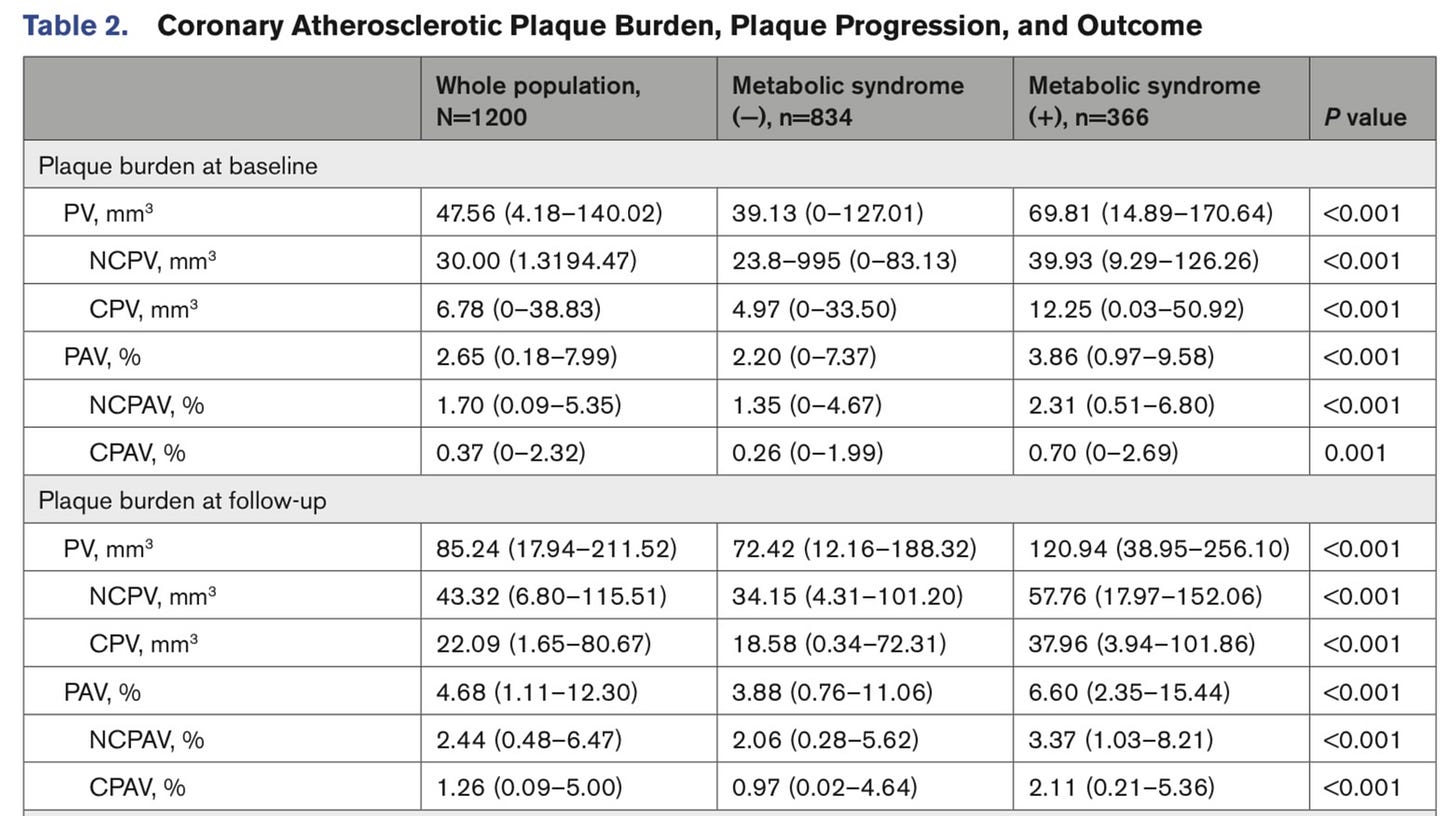
And if we look at the change in NCPV in this cohort, we can see that there seems to be an average increase of about 13mm3 over ~3 years. In folks with MetS, progression is about 17mm3 over ~3 years. (Albeit with a ton of variability).
And yet in lean individuals following a ketogenic diet and with elevated baseline LDL-C, they have an increase of ~20mm3* in ONE YEAR.
This looks bad.
It looks bad because the data from this KETO-CTA Trial therefore seems to suggest accelerated growth in unstable plaque in otherwise healthy individuals.
It looks even worse that a cardiology journal let this study be published in this way.
Secondary analysis
Instead of, um……. reporting their primary outcome, the investigators have instead lent upon some secondary analyses by looking at correlations between baseline LDL and baseline ApoB and plaque progression, and from this seem to be interpreting their data to say that neither LDL or ApoB explain progression in plaque, and in fact “plaque begets plaque”.
I find all of this weird as well. I would imagine their sample size is nowhere near powered to look at associations between baseline parameters and plaque progression. And the idea that “plaque begets plaque” seems incredibly flawed. There’s always going to be a correlation between any baseline value and the change in that value which is why we typically adjust for baseline values in trials.
Bottom line
It is really sad to see a study reported this way, especially in a world where papers are open access and members of the public may read the study and take the conclusions on their word.
My interpretation of this small cohort study is that it looks like a high ketogenic diet leading to increased LDL concentrations in lean, otherwise healthy individuals accelerates plaque formation.
If you follow a ketogenic diet, what should you do?
I have seen many patients who have been helped with ketogenic diets, and there are also anecdotes and case studies out there on people with distressing symptoms whether gastrointestinal, musculoskeletal or neurological who report dramatic resolution of their symptoms with ketogenic diets. I think it’s really important that as researchers we acknowledge these observations and seek to understand what is going on. I certainly don’t dismiss these individuals’ experiences.
However, the overwhelming evidence - which frankly this study just adds to - shows that elevated LDL cholesterol is a significant risk factor for atherosclerosis.
So if you follow a ketogenic diet and you really find it helps you (whether it’s to manage your weight or to improve symptoms of ADHD or other conditions), take steps to limit any rise in LDL cholesterol.
Such as:
Get most of your fat from unsaturated sources:
Mayonnaise (made with rapeseed oil)
Vegetable oil
Oily fish
Avocado
Nuts and seeds
Talk to your doctor about medications which will reduce your LDL cholesterol enabling you to get the benefits of the ketogenic diet while limiting the CVD risk.
*bear in mind I am guessing here, which I am forced to do because the investigators did not state this change in their paper. The actual average increase might be somewhere between 17 and 23mm3……..
Disclaimer
As a dietitian, and not a medical doctor, I am not qualified to diagnose any health conditions.

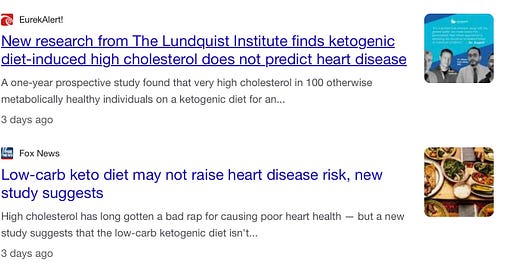





Appreciate your time to address this paper. And your estimation on change of NCPV in 1 year is right. Adrian Soto-Mota revealed the number which is 18.8 mm3 via twitter 3 days ago rather than in the published paper!!!.
It is so sad to know that the name of the published paper, the objective of the study were changed, the primary outcome has not been reported per the pre-registered trial.😭
I have followed you for more than 2 years. You are the trustworthy, credible source of Nutrition science❤️. Really appreciate it. Greeting from Thailand. 🇹🇭
Brilliant summary, thank you Dr Guess. Also as stated you’re completely right, one of the authors revealed the progression to be 18.8mm3 on twitter acting like this is all totally fine. It’s laughable really. He and the other authors have flooded social media commenting on this study hailing it as revolutionary. Luckily a few people I know are doing their best to fight back. Watch this space.